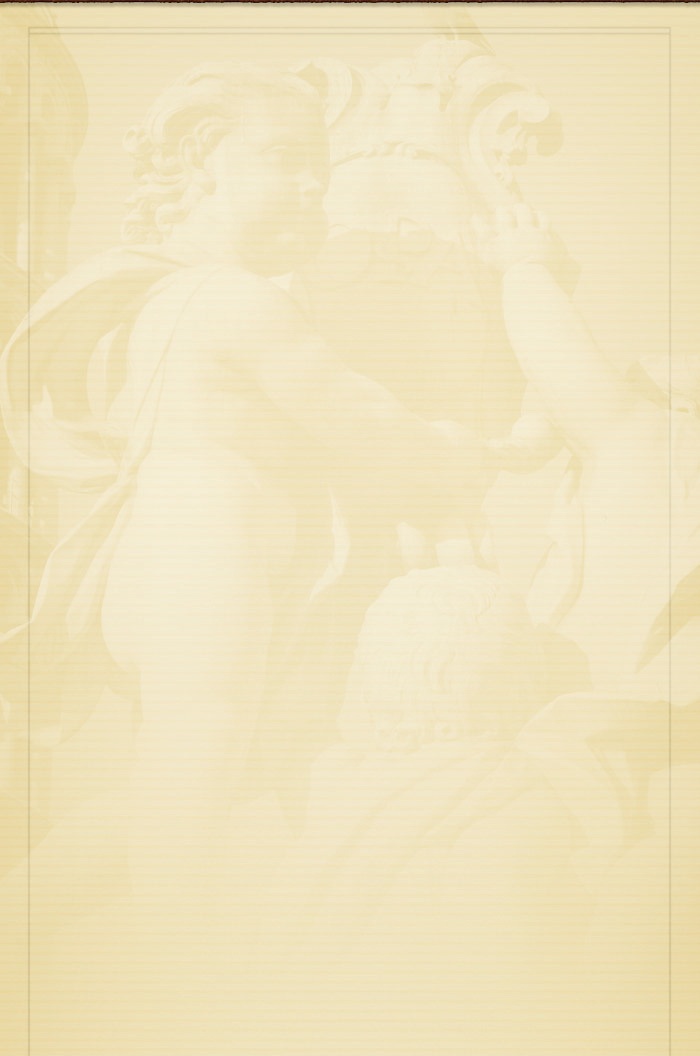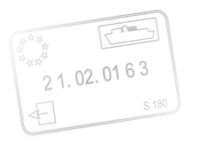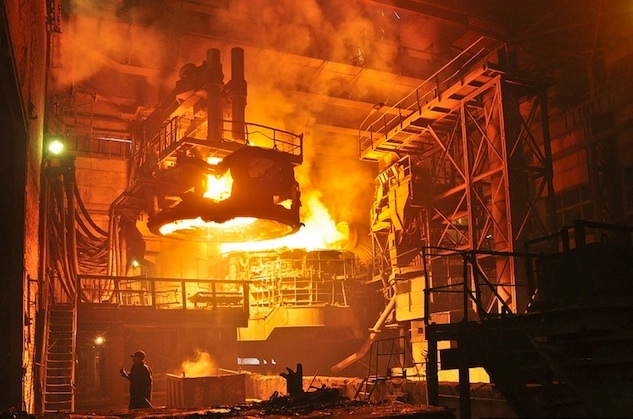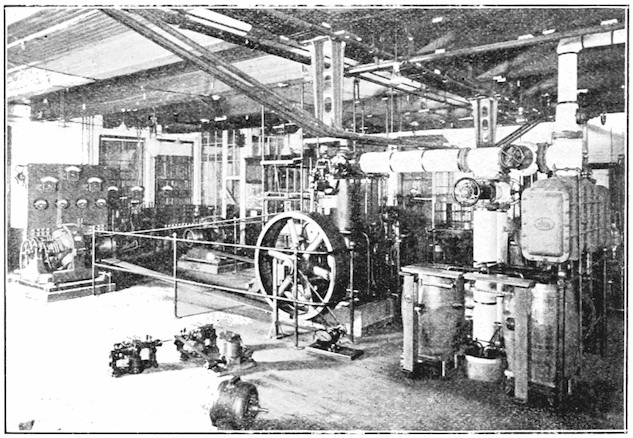So I was then the last one that left Young, he sent me here, he gave me the papers, he said, "You've got to go to Port Kembla, that was from the immigration authorities, because I still had another one year under contract. So, I said, alright. I packed my gear, and I took off, down to Port Kembla, to the steelworks. And I went there, and it was just the change of the shifts of the factory there. And I went through the gates, and I see about three or four blokes, they were at Young with me, coming out of the factory there. And I said, 'Oh, you're here too, are you?" And they said, "Yes." And I asked, the first thing I asked that Ukrainian bloke, I said, "What kind of work do you have going?" "Oh!", he said. "It's bloody hot!" he said, "and its hard." He showed me his hand, and it had real hard blisters whatever in his palms and everything. And I thought to myself, "Shit! I'm not going to survive there!"






And, I didn't go in there straight away, I went out into town first, to Wollongong, and I looked for a GP, a General Practitioner, and I went to that Doctor, and I said to him, and he asked me what's wrong with me, and I said, I showed him my right hand, the one I had that accident in Hungary, and I said to him that I can't do really hard work, because if I touch something it sometimes falls out of my hand. "Oh, I see." I said to him, "I will need a certificate for light duties." "Ok, alright." So he wrote me a certificate, and the next day, I packed up, and went to that steelworks at Port Kembla, and went in, and saw the employment officer, and I asked if there were any light duties around. He said, "Errr, at the moment I'm sorry, there is nothing, we haven't got any light duties at the moment." He said, "Why?" Then I gave him the certificate. And he said, "Oh, I see - no, sorry", he said, "I won't be able to put you on anywhere. You'll have to go back to the employment office." I said, "Alright, thanks very much."
So I went back to the employment office, and the bloke asked me, and I told him what it is, and he said, "That's alright. Now what kind of a job can I find you here?" He was looking around, and he said, "Nah, there's no light duties here, anywhere, except one." He asked me, "Do you have a driver's license?" I said "Yes." He said, "There is an immigration camp there where all the married woman also live from all the blokes that work in the steelworks." "And the manager of that camp, he's an old man, and he doesn't want to drive anymore", he said. "So he's looking for a driver the will drive him around. That's all you'll do", he said. "drive around and probably wash the car, that's about it." He said, "How's that, you think that would be alright for you, will you take that?" And I was sort of hesitating, and he said to me, "I know, you want to go to Sydney, don't you?" I said, "Yes." He said, "Alright, go to Sydney, and go to the employment office in Sydney." And that was it.
So, I packed up and went to Sydney. I went to the employment office, and they sent me out to Alexandria. B&S Electrical Engineering. And I said to the employment officer in Sydney, I said… I gave him the certificate straight away. And he said, "Alright, well you go out to the place, to the electrical engineering, and you give them the certificate, and see what they say." So I went out there, and I gave them the certificate, and the man said, "Show me your hand!" And I showed me my hand. And he said, "That's all right, you'll be right." So, I started there, and I was there for about three years. I really liked that place. I am glad, even today, that I did go there, because that's where I learnt all about working with metals, whether it was brass, steel, or cast iron, or copper, or doesn't matter what. Even sharpening tools for different metals, and the way you work with it, I reckon that was a great learning for me there anyhow.

I was there for three years, my contract was long over, and then I thought I'll be looking for some other job somewhere. So I found a place in Kensington as a tailor. Was an Austrian Jew too, he had a tailor shop, He said, "What about <?>, will that be alright?" I said, "Nah, I don't think so, no." So, they were advertising for a machinist to be learnt at W. H. O. Wills, the tobacco factory. So I went there, presented myself, and said "I'm looking for a job." And they said, "Alright, ok." So they took me in, and showed me the machine, what it's going to be. And they said, "You're machine is not ready yet, they are still building it. There is only one machine there that is going. They are going to make another four of them apparently. So you'll be on this one learning, and then by that time the other one will be ready." And so I did.
So I did go to the W. H. O. Wills tobacco place, and I was learning how to operate that machine. And that was really good - I really liked that. I leaned about that machine, there was a lot of overtime, and it also was piece work. And the holidays, in the yearly holidays when we had, I never took a holiday, I was in side the factory. The rafters had to be cleaned down, and all the lockers, there about more than a hundred people working there, most of them all women. And the lockers had to be cleaned out, and everything swept, and vacuumed and everything during the yearly holiday. That's what I did for about three years. I never had a holiday or nothing, I just kept working right through around the year. And them I decided to go to Europe, so from there on, when I went to Europe, when they gave me the money the bloke said, the purser, who was giving us the wages, he worked it out, I had all the sick days, plus all the holidays, and everything together, he said, "I have never paid that out to anybody in this place that much money what I'm giving you!" I said, "That's good, because I need it", I said to him.





